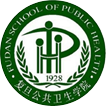The school of public health of Fudan University originated from Professor Yan Fuqing's establishment of the Department of public health in Shanghai Medical College in July 1928. In different periods, the school of public health has played an important role in the decision-making of China's disease prevention, prevention and health care and health policy, and has cultivated a large number of well-known experts and professors at home and abroad. In recent years, the comprehensive strength and characteristic advantages of the discipline have been further developed, with national major public health issues as the research focus, playing an active and important role. The strength of scientific research and international cooperation have been continuously improved. Young and middle-aged teachers grow rapidly, forming a teaching and research group with young and middle-aged scholars as the main body. The college always takes it as its duty to train high-quality preventive medicine and health management talents. The college aims to ensure the health of the population, control major diseases and contribute to scientific decision-making. In its long-term scientific research and teaching activities, it has formed five main research directions: "epidemic law and control of major diseases", "environmental medicine and Health Toxicology", "population health and health behavior", "community medicine and health service", "health policy and management". A number of domestic key projects won awards frequently and were directly applied to national health decision-making. The research results are more international dissemination, and some of the international cooperation research results are promoted by the World Health Organization.

Acdemic supporter
Fudan School of Public Health
The school of public health of Fudan University was founded in 1928. It is the Department of public health founded by Professor Yan Fuqing in the medical college. In 1952, it was renamed the school of public health and has continued to this day. The current president is Professor He Na, and the Secretary of the Party committee is Professor Luo Li.
The college has two national key disciplines: social medicine and health management, epidemiology and health statistics. Two state key laboratories under the Ministry of public health and safety: the Key Laboratory of the Ministry of public health and safety education, and the Key Laboratory of health technology evaluation of the Ministry of health. A key discipline in Shanghai: epidemiology and health statistics. There are also key disciplines of public health in Shanghai: environmental health, health promotion and health education, labor health, epidemiology and health toxicology. Epidemiology and health statistics, labor hygiene and environmental hygiene are the key subjects of the first phase of "985 Project" of Fudan University.
The college has the Institute of preventive medicine of Fudan University, the Hospital Management Research Institute of Fudan University, the research and evaluation center of pharmacoeconomics of Fudan University, the World Health Organization vocational health training and research cooperation center, and the World Health Organization Health Technology Evaluation and management cooperation center. The college is a cooperative member of the European International Health Postgraduate Education Network (troped), and is determined to be a pilot unit for the reform of master's degree in public health of the Ministry of education.
At present, the college has 97 full-time teachers, including 30 professors, 19 associate professors, and the proportion of teachers with associate professors or above is higher than 50%. Among the teachers, there are 28 doctoral supervisors and 19 postgraduate supervisors. 74 teachers have doctorates, accounting for 76% of the total number of teachers. There are 48 young teachers under the age of 40, accounting for 49% of the total number of teachers. The proportion of young teachers with master's degree or above reaches 100%.
In addition, the college has established long-term and stable cooperative relations with CDC and Health Supervision Institute in Changning District, Xuhui District, Huangpu District, Jing'an District, Luwan District and Minhang District of Shanghai, as well as undergraduate practice bases such as CDC in Putuo District. Students majoring in public service management have five professional practice bases, namely, Shanghai Health Bureau and Xuhui District Health Bureau Department of health, Zhongshan Hospital Affiliated to Fudan University, Huashan Hospital and East China Hospital. All the teachers in the above practice bases have the title of deputy senior or above.
From 2005 to 2010, the college obtained 169 million yuan of scientific research funds. In 2005-2010, he undertook 1020 longitudinal projects. From 2005 to 2010, there were 35 general programs of NSFC, 16 youth programs, 3 support programs during the 11th five year plan, 2 "863" programs, 2 973 programs, 4 Shanghai dawn programs, and 150 international cooperation programs. From 2005 to 2010, 1930 papers were published in core journals, 233 of which were included in SCI and SSCI.
The college has established inter academic exchanges with internationally renowned universities and research institutions such as Harvard University School of public health, Johns Hopkins University, University of Illinois, University of California, Duran University, University of Hawaii, Umar University of Sweden, Liverpool School of Tropical Medicine, Netherlands Institute of public health and environment, Sydney University of Australia and Adelaide University Flow links. Every year, the college hosts or undertakes large-scale academic conferences at home and abroad. Every year, a large number of teachers go abroad for academic exchanges and attend international academic conferences.
